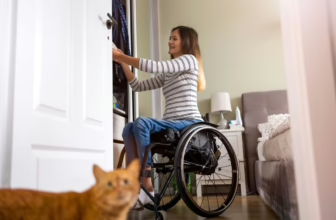If you have a disability, chances are that you've experienced some form of discrimination. Despite our many advances as a society, ableism and systemic ableism still permeate our healthcare system, schools, employers, and even our language. This guide provides practical advice on how to advocate for your civil and legal rights as a person with a disability.
Understanding Your Legal Rights
Every individual with a disability is protected under laws including but not limited to:
- The Americans with Disabilities Act (ADA) prohibits disability discrimination in employment, government services, and businesses that are open to the public. It requires that facilities, buildings, and programs be accessible to people with disabilities.
- The Individuals with Disabilities Education Act (IDEA) requires that schools provide a free, appropriate public education to eligible children with disabilities. Students with disabilities have the right to an Individualized Education Plan (IEP) and to be placed in the least restrictive environment, meaning a classroom where they are integrated with non-disabled students as much as possible.
It's important to familiarize yourself with these laws to understand your rights in various scenarios. Remember, being informed is your first step in self-advocacy.
Identifying Discrimination and Injustice
Disability discrimination that merits legal action can include being unable to shop at a store in an inaccessible building or being denied reasonable accommodations at work or in educational settings. If you feel you're being treated unfairly due to your disability, document these instances. Keep records of emails, notes from meetings, and any other relevant communication. Understanding the difference between unfair treatment and legal discrimination is vital in deciding how to proceed.
Effective Communication Skills
Navigating the complexities of self-advocacy when you have a disability can be challenging yet empowering. Practice expressing your needs in a concise and assertive yet polite manner. It's also important to listen and understand the perspectives of others involved. This skill helps in everyday interactions and situations where you might have to negotiate accommodations or explain your rights.
Building a Support Network
Creating a support network can be incredibly beneficial. This network can include friends, family, healthcare providers, or members of disability advocacy groups. Your network can offer support and advice and may assist in advocating on your behalf. They can also help in gathering information and understanding complex legal jargon.
Accessing Resources and Assistance
It's important to be aware of the resources and assistance available to you. Many organizations offer services ranging from legal aid to counseling for individuals with disabilities. These resources can provide valuable information and support in your self-advocacy journey. Organizations such as Partners in Policymaking offer workshops and training sessions on self-advocacy and legal rights.
Seeking Legal Representation
If the situation warrants, seek legal representation. Look for attorneys who specialize in disability law. Every state has a nonprofit organization that can provide pro bono (free) representation to people with disabilities whose legal rights have been violated. Search for “disability rights [your state name]” to find them. They can provide guidance on your rights and the best course of action. Be prepared to discuss your case in detail, providing all necessary documentation. Remember, a good lawyer is not just a legal expert but also an advocate for your rights and well-being.
Filing a Lawsuit or Federal Complaint
Navigating legal procedures might be necessary if your rights have been violated. This could involve filing a complaint with a federal agency such as the Department of Justice or pursuing legal action using a state law that allows plaintiffs to collect damages for ADA violations.
If you've been adversely affected by something like improper Paraquat use, a drug that harmed many people, or a doctor who injured many patients due to negligence, you may be able to initiate or join a class action lawsuit. A class action lawsuit is brought on behalf of a large number of people who have been injured or experienced discrimination.
Staying Informed and Proactive
Staying informed about new laws, policies, and resources is crucial in self-advocacy. Subscribe to newsletters from disability rights organizations, attend community meetings, and stay connected with local advocacy groups. Being proactive also means regularly reviewing and updating your knowledge about your rights. This proactive approach not only benefits you but can also help you assist others in your community who may face similar challenges.
Understanding your legal rights as a person with a disability empowers you to live a more fulfilling life and effectively advocate for yourself and others in similar situations. Remember, your voice and rights matter, and advocating for them is not just a personal benefit but a step towards greater societal inclusivity and justice.
Follow me down the rabbit hole!
I'm Alice and I live with a dizzying assortment of invisible disabilities, including ADHD and fibromyalgia. I write to raise awareness and end the stigma surrounding mental and chronic illnesses of all kinds.








